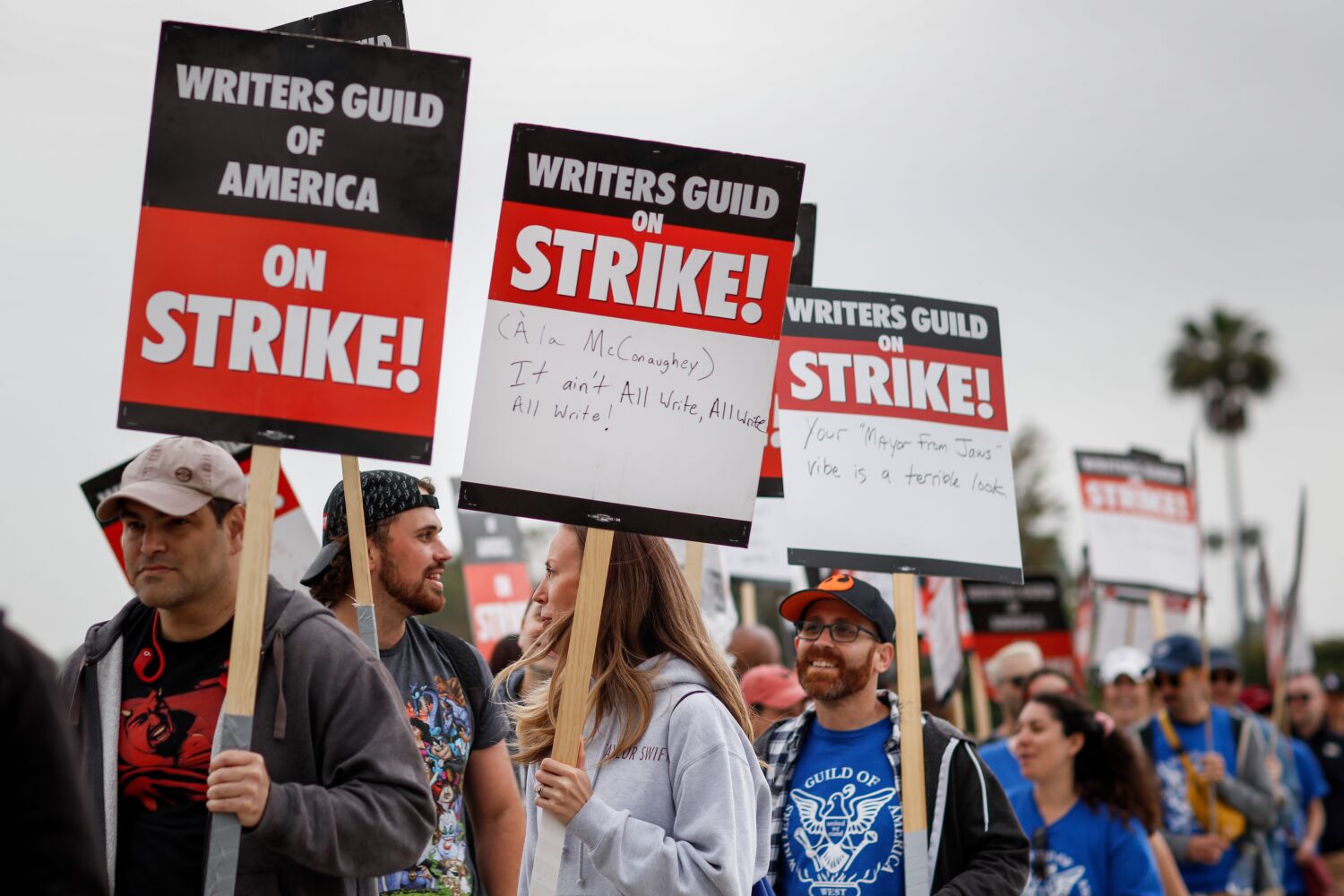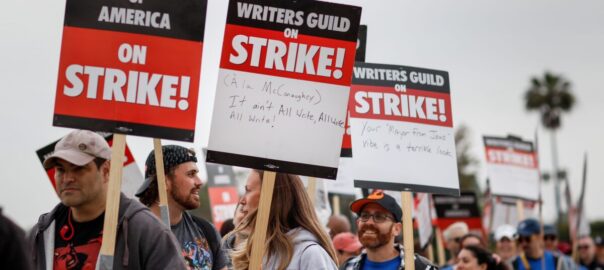[ad_1]

Negotiators for film and TV writers were set to meet with studio representatives on Friday afternoon, a step that could represent a long-awaited thaw in the icy Hollywood strike that has largely kept the entertainment industry at a standstill since early May.
Writers Guild of America members have been on strike for more than 100 days, resulting in headaches for studios and financial losses for entertainment-related businesses, including talent agencies and prop houses and crew members struggling to make ends meet. The situation escalated in mid-July when film and TV actors joined writers on the picket lines.
It’s not clear whether the talks will lead to a significant breakthrough or how long it will take for the sides to reach a deal for a new three-year contract between the WGA and the Alliance of Motion Picture and Television Producers. Most industry observers and insiders are still bracing for the conflict to stretch on for weeks, if not months.
The sides remain far apart on issues pertaining to the future of the industry, including how writers are compensated for streaming shows, protections against the use of artificial intelligence and the guild’s demand for minimum staffing requirements in writers rooms depending on series length. The studios have previously indicated they are prepared to discuss AI protocols. .
Friday‘s session is the second time that representatives for the WGA and the AMPTP have agreed to meet since the writers’ strike began.
They previously met on Aug. 4 to discuss resuming negotiations, but those talks did not go well, according to people familiar with the matter. During that meeting, WGA asked for a healthcare benefit extension and the right for WGA members to honor other unions’ picket lines, according to a note the WGA’s negotiating committee sent to members last week.
Even before that summit, WGA leadership encouraged members to be wary of the studios’ “playbook.” The studio alliance called the union’s rhetoric “unfortunate.”
The lead-up to Friday’s meeting was more hopeful in tone from the various parties.
“We expect the AMPTP to provide responses to WGA proposals,” the WGA negotiating committee wrote in a letter to members on Thursday. “Our committee returns to the bargaining table ready to make a fair deal, knowing the unified WGA membership stands behind us and buoyed by the ongoing support of our union allies.”
Studio executives have lately been increasingly conciliatory in their remarks about the labor disputes, reflecting a need to get the industry back to work.
“We’re saddened that as an industry, we couldn’t come to an agreement that would have prevented this,” Paramount Global Chief Executive Bob Bakish said Monday during an earnings call with investors. “Our partnership with the creative community is critical to the health of our industry. So we remain hopeful for a timely resolution, and we are committed to finding a path forward.”
Experts said they expect the negotiations to be a long process.
“It appears as though most of the industry is really on the edge of their seat because last week’s meeting about a meeting, as they called it, was so disastrous,” said Tom Nunan, a former studio and TV network executive. “That scrutiny is going to be higher than usual on this meeting to see if any progress whatsoever is possible.”
Studios are under pressure to come up with programming that will entice audiences amid the strikes, resulting in them leaning into international productions, reality TV series and sports. But they face challenges as actors abroad and reality TV stars push for greater protections as well.
Media and entertainment companies face existential challenges to their businesses, including the acceleration of cord-cutting. Streaming services run by the traditional studios are hemorrhaging cash.
This is a developing story.
Times staff writer Meg James contributed to this report.
[ad_2]
Source link
